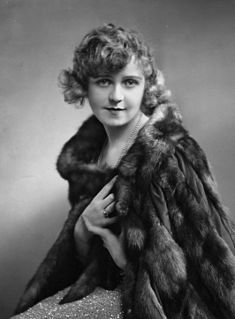Related Research Articles
Squib or Squibb may refer to:
George Pearson OBE, was a pioneering English film director, producer and screenwriter, mainly in the silent film era. He was born in London.

Sam M. Lewis was an American singer and lyricist.

Betty Balfour was an English screen actress, popular during the silent era, and known as the "British Mary Pickford" and "Britain's Queen of Happiness". She was best known to audiences for her Squibs series of films.
Nothing Else Matters is a 1920 British film, written by Hugh E. Wright, and directed by George Pearson. This was the screen debut of Mabel Poulton and Betty Balfour who went on to become leading British stars of the 1920s.

Hugh E. Wright was a French-born, British actor and screenwriter. He was the father of actor Tony Wright.

Squibs is a 1935 British musical romantic comedy film directed by Henry Edwards and starring Betty Balfour, Gordon Harker and Stanley Holloway.
Royal Eagle is a 1936 British crime film directed by George A. Cooper and starring John Garrick, Nancy Burne, Felix Aylmer and Edmund Willard. The screenplay was written by Arnold Ridley.
Squibs is a 1921 British silent comedy film directed by George Pearson and starring Betty Balfour, Hugh E. Wright and Fred Groves. It was followed by three sequels starting with Squibs Wins the Calcutta Sweep and a 1935 remake.
Cinders is a 1926 British silent comedy film directed by Louis Mercanton and starring Betty Balfour, Fred Wright and André Roanne. A servant in a London boarding house loses her job and accompanies one of the lodgers to his newly acquired casino on the French Riviera.
Somebody's Darling is a 1925 British silent comedy film directed by George A. Cooper and starring Betty Balfour, Rex O'Malley and Fred Raynham.
Garryowen is a 1920 British silent sports film directed by George Pearson and starring Fred Groves, Hugh E. Wright and Moyna Macgill. It was based on a novel by Henry De Vere Stacpoole. It concerns an impoverished Irish gentleman who tries to rescue his family from ruin by running his horse Garryowen at The Derby.

Fred Groves was a British actor of the celebrated Groves acting family. On stage from 1896, he appeared in the original West End production of Noël Coward's Cavalcade (1931-2); and was a leading man in silent films, latterly becoming a character player in movies. He appeared in the 1925 play Number 17 in the West End.
Rangers of Fortune is a 1940 American Western film directed by Sam Wood. The plot revolves around three heroes, played by Fred MacMurray, Albert Dekker, and Gilbert Roland, as they battle a ruthless land baron who is intent on driving out small ranchers and settlers. Patricia Morison co-stars.
The Welsh-Pearson Company was a British film production and distribution company active during the silent and early sound eras. It was founded in 1918 by two pioneering film figures, George Pearson and Thomas Welsh, with the single-stage Craven Park Studios as their base. Because of the cramped conditions there, Welsh-Pearson had to use other studios such as Islington for larger scenes.
Mary-Find-the-Gold is a 1921 British silent drama film directed by George Pearson and starring Betty Balfour, Tom Coventry and Hugh E. Wright.
Raise the Roof is a 1930 British musical film directed by Walter Summers and starring Betty Balfour, Maurice Evans, and Jack Raine. It was made at Elstree Studios.
Squibs M.P. is a 1923 British silent comedy film directed by George Pearson and starring Betty Balfour, Hugh E. Wright and Fred Groves.
Squibs' Honeymoon is a 1923 British silent comedy film directed by George Pearson and starring Betty Balfour, Hugh E. Wright and Fred Groves. It was the last of the silent film series featuring the character, although Balfour returned to play her in the 1935 sound film Squibs. Both Pearson and Balfour were particular favourites of the British film critic, and later leading screenwriter, Roger Burford. In his first article for the magazine Close Up Burford would write "Not long ago a film of the Squibbs series was reported to be on at a small cinema in a slum district. It was a rare chance, and we went at once. We were not disappointed: the film was English, with proper tang; the tang of Fielding or Sterne.' Burford's comments help place the Squibbs films perfectly in British culture between the wars. They were very much working-class comedy, drawing on a vernacular, performative tradition, but at the same time their "Englishness" is characteristic of the kinds of satirical comedies found in the novels of Henry Fielding and Laurence Sterne. That earthy satire, based on everyday life, made these comedies unpalatable to middle class audiences but the Squibbs films were amongst the most interesting, and well shot, films in Britain in the 1920s.
The Maid at the Palace is a 1927 French silent film directed by Louis Mercanton and starring Betty Balfour, Lucy Sibley and Irene Tripod.